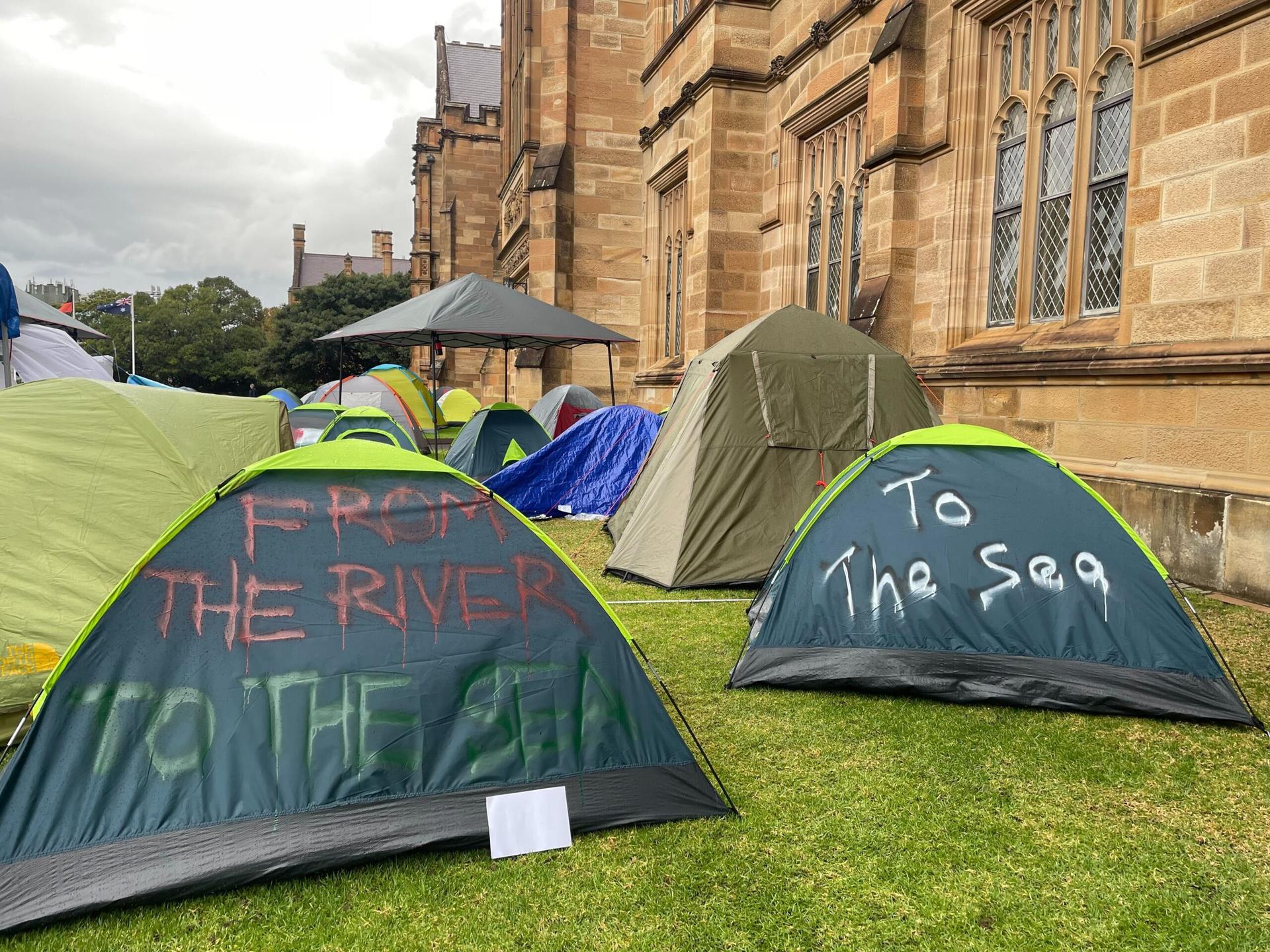Sixty or so tents are clustered in front of the Gothic-style Great Hall at The University of Sydney in Sydney, Australia. Some are spray-painted with popular slogans from the pro-Palestinian movement.
The encampment, inspired by US demonstrations, sprung up at the university about a week ago. Students here have also led protests and blocked traffic.
Declan Godwin is one of the Sydney protest’s organizers.
“It’s safe to say, without us, there wouldn’t be an encampment here, and it was a very simple case of us watching videos of students occupying their universities, and then, of police smashing those occupations up. Which inspired us to think, well, why don’t we just do the same thing here?” Godwin said.
Students across the globe appear to have had the same idea. In Paris earlier this week, police removed dozens of protesters who had occupied the main courtyard of Sorbonne University. At Sciences Po university, also in Paris, students blocked access to a campus building with makeshift barricades made from bicycles, plastic trash bins and planks of wood.
Pro-Palestinian demonstrators at University College London demanded an end to the war in Gaza. In Italy, violent clashes broke out with police at Sapienza University of Rome. Students there chained themselves together and went on a three-day hunger strike. And protest encampments are going up at universities in Canada and New Zealand.
In Sydney, protesters say they have no plans to leave anytime soon.

“We’re demanding the university cut ties with Israel through the strategic research partnerships the university has with weapons companies such as Thales, which is the sixth-largest weapons company in the world,” Godwin said.
Thales funds PhD programs at the university in the mechanical and electrical engineering departments. Thales also works with Israeli weapons manufacturer Elbit systems to build drones that have been used in attacks on Gaza.
“Our university allows student and staff research to go towards perfecting that military technology, sometimes without the knowledge of staff and students who have been participating,” he explained.
The University of Sydney has indicated it won’t divest from firms that do business with Israel or boycott academic exchanges with Israeli universities.
The university declined a request to comment but sent a statement saying the school is committed to allowing peaceful protests, but warned anyone breaking the university’s rules would face disciplinary action.

Jasmine El Rawy, who represents Students for Palestine, said she feels what they’re doing on campus is significant.
“I was sent a photo that was taken in Gaza where someone had written in one of the tents, in one of the many refugee camps being set up, they wrote like, ‘Australia we see you, we hear you in Gaza.’ So, what we’re doing isn’t just a small thing at Sydney University but actually gives them hope as well.”
Rawy said that she wants people in Gaza to know that students around the world are standing with them, and watching what’s happening on campuses across the US, and she said that she’s eager to see that message spread.
